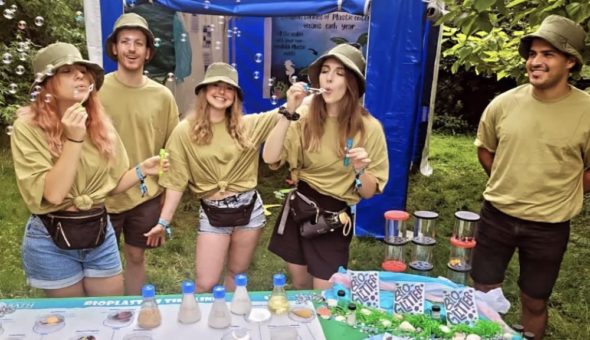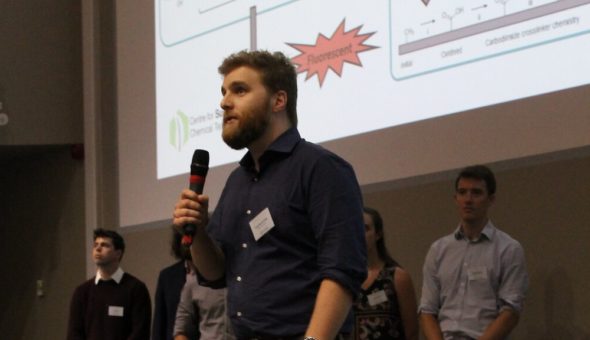Our third year CSCT student, Paul McKeown took part in the Three Minute Thesis (3MT®) competition held at University of Bath. The competition challenges doctoral candidates to present a compelling spoken presentation on their research topic and its significance to a non-specialist audience in just three minutes." Here is how Paul presented his thesis titled 'Sustainable Polymers in Supercritical CO2'.
Plastics are mainly derived from petrochemicals which are unfortunately dwindling, which is an issue as these materials have desirable properties such as flexibility and light weight applications.
A further drawback is the persistence of such materials in the environment; we’ve all seen plastic shopping bags hanging around for what could be forever.
Plastics from corn is an interesting alternative. Corn is an annually renewable feedstock, and lactic acid based materials derived from it are relatively easier to break down at the end of life and are suitable for use in the body – a lot like a skittle!
There are two forms we can get from corn, green and yellow, say.
Now, we can imagine combining these two forms in various ways. We can get a jumbled up random mixture or we can aim for a nice alignment of colour. The difference between these is having a plastic cup that can hold hot water and on the left are that will melt in your hands.
I am interested in the scenario on the right. The difficulty is persuading the skittles to line up like this at a molecular level. To achieve this I use metals. Ideally, we’d like this to be fast and we like to work at high temperature to avoid using a liquid to dissolve our skittles and metal which can lead to the arrangement of chains getting hot and flustered no mistakes are to be expected.
To summarise therefore, I indirectly match skittles by colours at a molecular level for my PhD.
Watch Paul's presentation on YouTube
Paul is working towards his PhD in the CSCT and is supervised by Professor Matthew Davidson, Dr Matthew Jones and Dr Uli Hintermair at University of Bath and Professor Steve Howdle at University of Nottingham.
Respond



